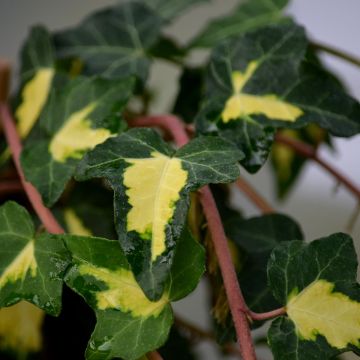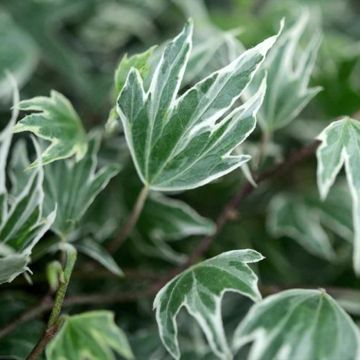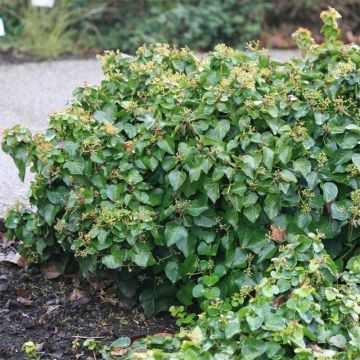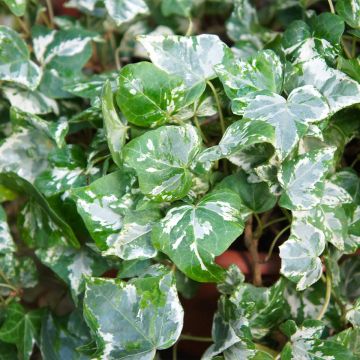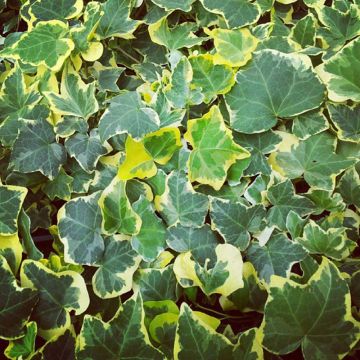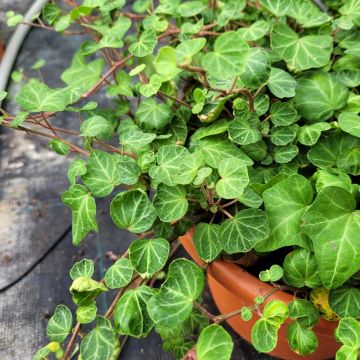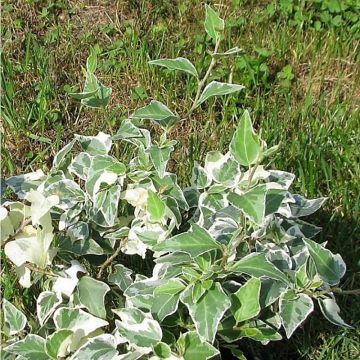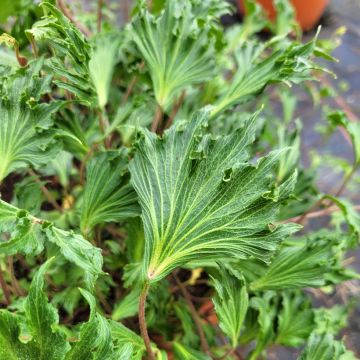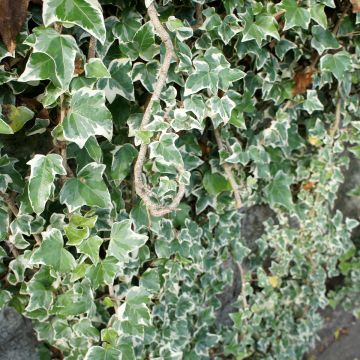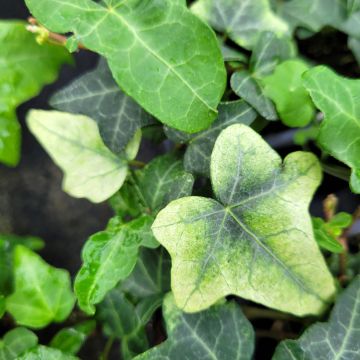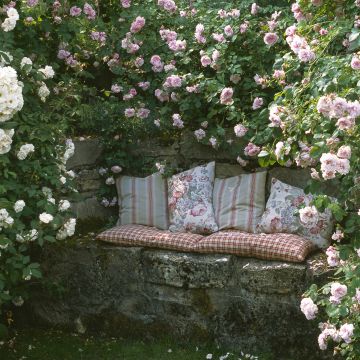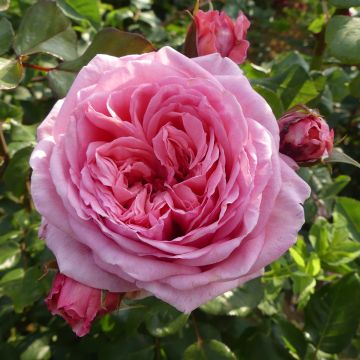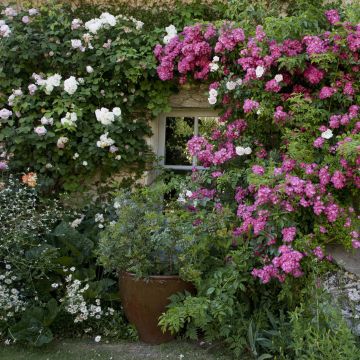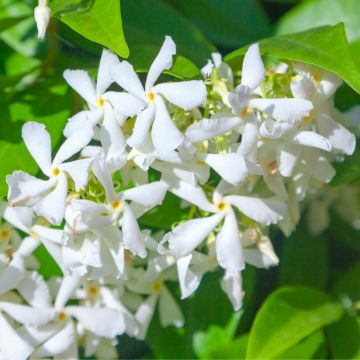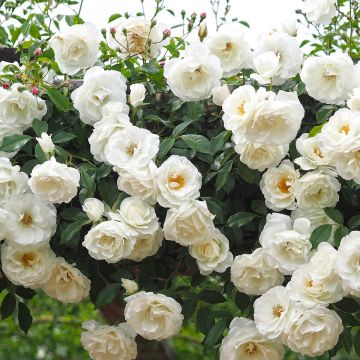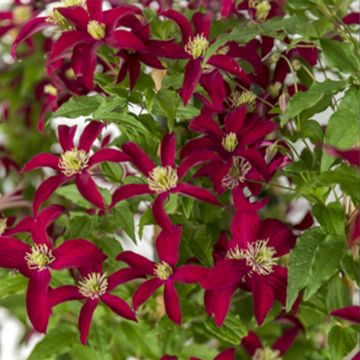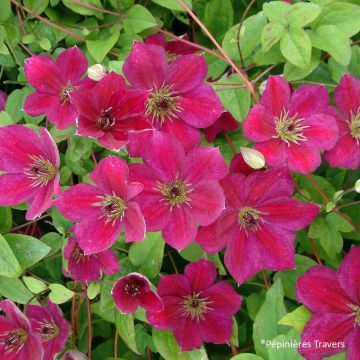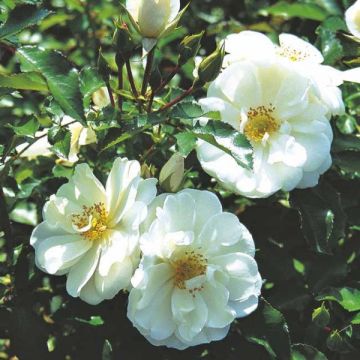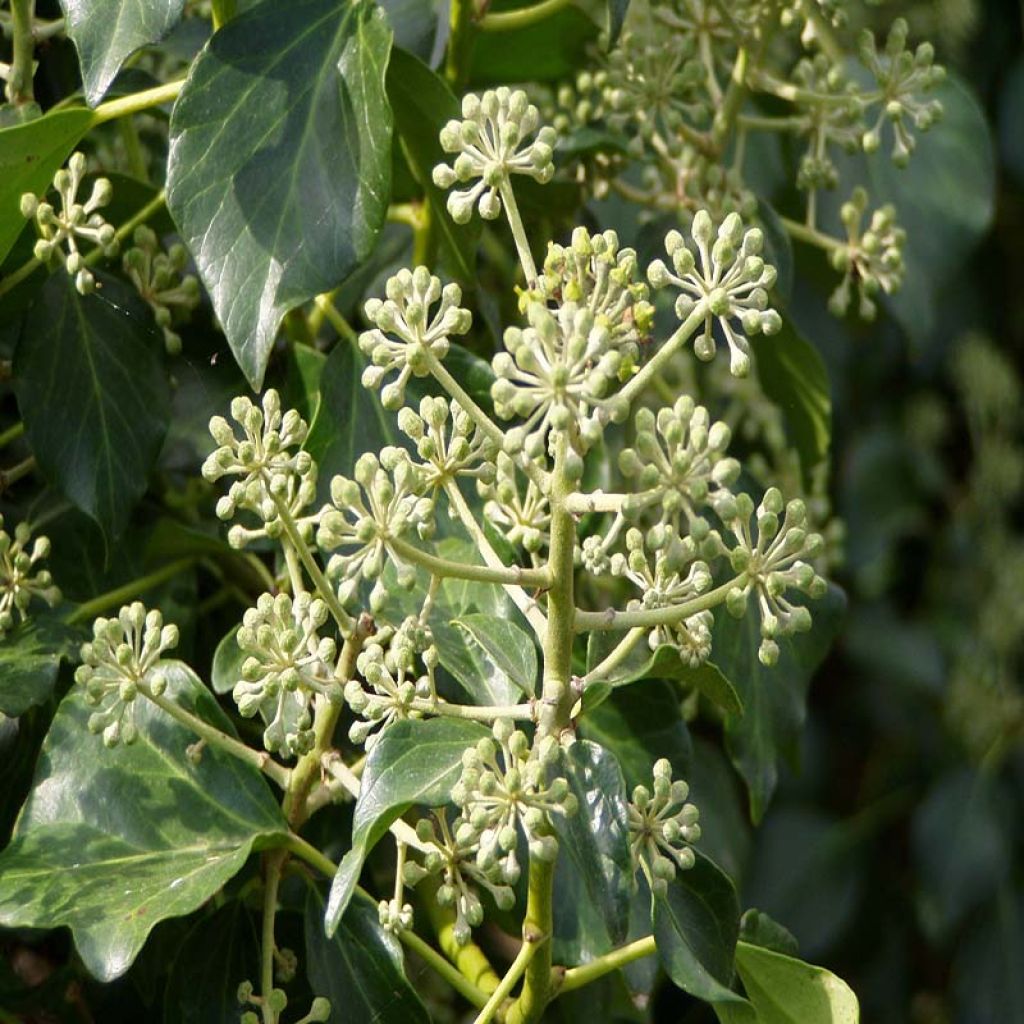

Hedera hibernica - Irish ivy
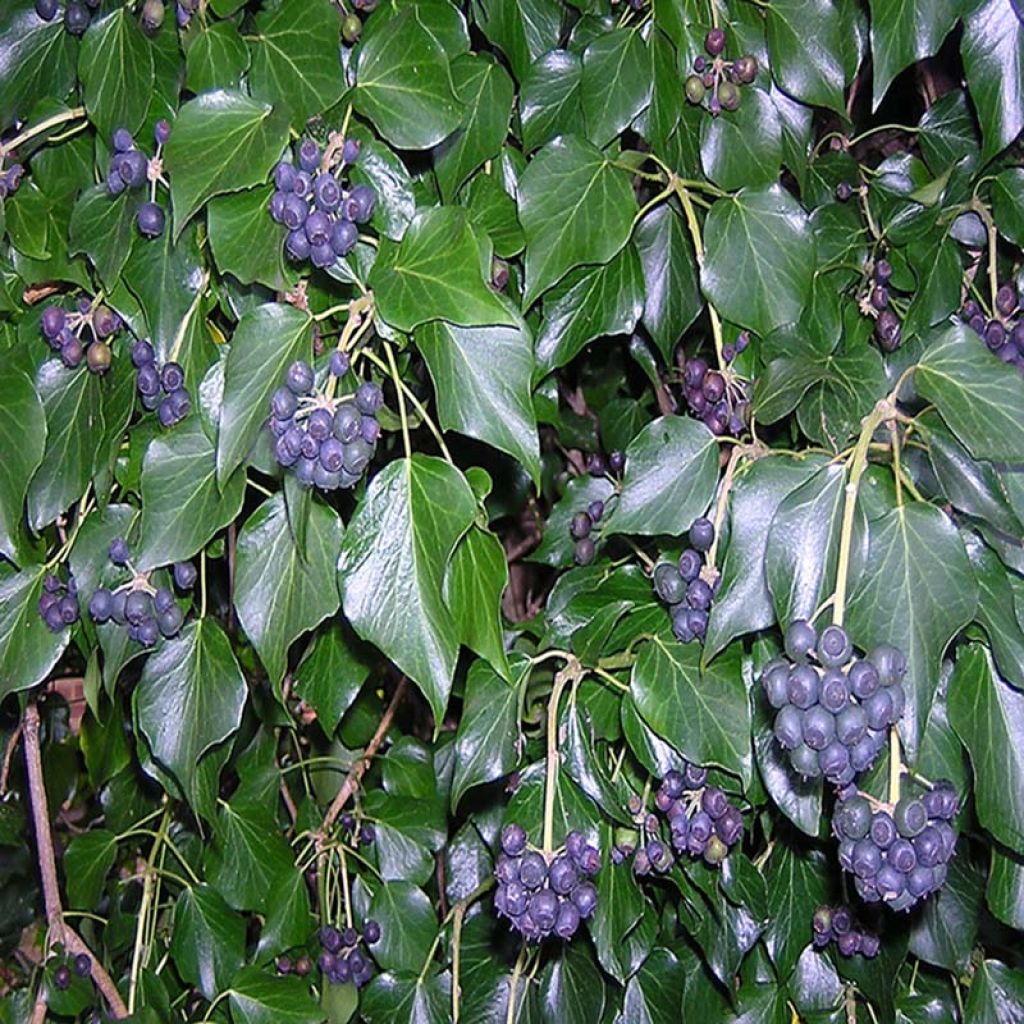

Hedera hibernica - Irish ivy
Hedera hibernica - Irish ivy
Hedera hibernica
Atlantic ivy, Irish ivy
Our little plants have arrived safely, well packaged, protected and in good shape! They have found their place and so far, no plant has suffered. Stay tuned...
Delphine S, 04/05/2021
Special offer!
Receive a €20 voucher for any order over €90 (excluding delivery costs, credit notes, and plastic-free options)!
1- Add your favorite plants to your cart.
2- Once you have reached €90, confirm your order (you can even choose the delivery date!).
3- As soon as your order is shipped, you will receive an email containing your voucher code, valid for 3 months (90 days).
Your voucher is unique and can only be used once, for any order with a minimum value of €20, excluding delivery costs.
Can be combined with other current offers, non-divisible and non-refundable.
Home or relay delivery (depending on size and destination)
Schedule delivery date,
and select date in basket
This plant carries a 6 months recovery warranty
More information
We guarantee the quality of our plants for a full growing cycle, and will replace at our expense any plant that fails to recover under normal climatic and planting conditions.
Would this plant suit my garden?
Set up your Plantfit profile →
Description
Hedera hibernica (H. helix subsp. hibernica), better known as Irish Ivy, is a vigorous, hardy species, distinguished by its abundant evergreen foliage of dark green colour. As a climbing plant, it can cling to any support to form a beautiful green wall, enhance a hedge, or serve as ground cover to replace grass in dry and shaded areas.
Hedera hibernica is a botanical species native to Ireland, actually a tetraploid form (with a doubled chromosomal stock) of common ivy, which is widespread in European countryside and woodlands. Ivies belong to the Araliaceae family, they are cousins of Ginseng and fatsias. Its growth is very rapid, allowing it to reach a length or height of 10m (33ft) in a few years. Its large ovate, triangular, leathery leaves, with barely marked lobes, measuring 8cm (3in) in length, have a particularly shiny dark green colour. There are two different leaf forms on the plant, depending on their function: the cauline leaves are divided into 5 lobes, while those of the flowering stems, exposed to light, are more oval, shaped like an ace of spades. Its branches can cling to supports by themselves, thanks to powerful climbing roots. The branches are partially covered with greyish star-shaped hairs and bear climbing roots, which are transformed roots carrying sucker hairs that attach to a support. They have no nutritional function, as ivy solely nourishes itself through its underground root system. Flowering occurs in September-October, and fruiting in late winter or early spring. The flowers, cream to yellowish-green, have five petals. They are grouped in umbels, themselves arranged in terminal clusters. The fruits are round black-blue berries, 8 to 9mm wide, and they are gathered in clusters. They are toxic if ingested by mammals, particularly humans, but nutritious and valuable for certain birds such as songbirds and pigeons.
It suits everything, and everything suits it! Irish Ivy quickly enhances any challenging areas of the garden, in the shade, and can rapidly cover up anything it needs to hide, including conifers that have decayed in a monocultured hedge. Using it this way, it can be supported by evergreen bushes such as Spotted Laurel, Portuguese Laurel, or hedge clematis. It effectively and perfectly covers the ground, eventually discouraging weeds. To brighten up its monochrome foliage, spring-flowering bulbs like botanical narcissus or muscari can be planted, which will emerge from the green carpet in spring. Hedera hibernica is a good wall cover, but don't neglect it as it can quickly become invasive. Although its reputation as a destroyer is well established, it has protected old dilapidated walls more than it has destroyed them; it is the removal of this plant firmly rooted in the crevices that causes the masonry structure to collapse, while the plant maintains its integrity. However, its use on facades should be avoided. Pair it with dense perennials to keep the soil moist at its base.
Report an error about the product description
Hedera hibernica - Irish ivy in pictures
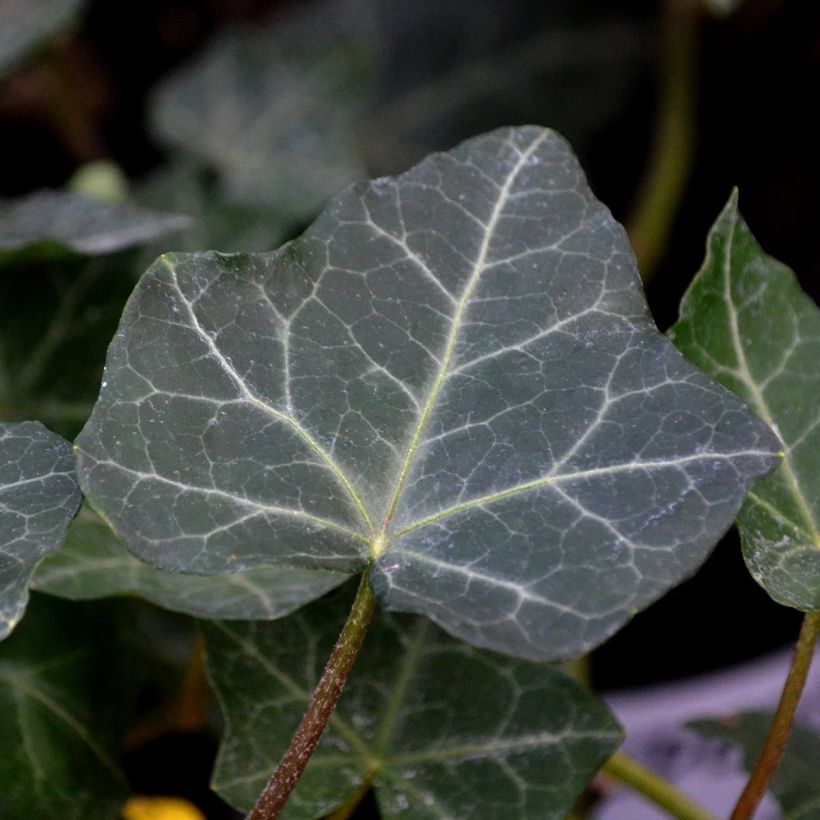

Plant habit
Flowering
Foliage
Botanical data
Hedera
hibernica
Araliaceae
Atlantic ivy, Irish ivy
Western Europe
Other Hedera - Ivy
View all →Planting and care
Hedera hibernica, easy to grow, can be planted all year round in fertile, moist but well-drained soil, preferably against a wall in any situation and sheltered from cold winds. Once well established, it can withstand summer drought. To promote the growth of young shoots, fix the first ones to the ground (layering). Do not hesitate to rejuvenate the plant by removing old branches. Prune regularly to shape it. For container cultivation, mix 7 parts of ordinary soil, 3 parts of compost and 2 parts sand. Water regularly and apply fertiliser every month during the growth period. Keep the substrate moist during winter.
Planting period
Intended location
Care
-
, onOrder confirmed
Reply from on Promesse de fleurs
Similar products
Haven't found what you were looking for?
Hardiness is the lowest winter temperature a plant can endure without suffering serious damage or even dying. However, hardiness is affected by location (a sheltered area, such as a patio), protection (winter cover) and soil type (hardiness is improved by well-drained soil).

Photo Sharing Terms & Conditions
In order to encourage gardeners to interact and share their experiences, Promesse de fleurs offers various media enabling content to be uploaded onto its Site - in particular via the ‘Photo sharing’ module.
The User agrees to refrain from:
- Posting any content that is illegal, prejudicial, insulting, racist, inciteful to hatred, revisionist, contrary to public decency, that infringes on privacy or on the privacy rights of third parties, in particular the publicity rights of persons and goods, intellectual property rights, or the right to privacy.
- Submitting content on behalf of a third party;
- Impersonate the identity of a third party and/or publish any personal information about a third party;
In general, the User undertakes to refrain from any unethical behaviour.
All Content (in particular text, comments, files, images, photos, videos, creative works, etc.), which may be subject to property or intellectual property rights, image or other private rights, shall remain the property of the User, subject to the limited rights granted by the terms of the licence granted by Promesse de fleurs as stated below. Users are at liberty to publish or not to publish such Content on the Site, notably via the ‘Photo Sharing’ facility, and accept that this Content shall be made public and freely accessible, notably on the Internet.
Users further acknowledge, undertake to have ,and guarantee that they hold all necessary rights and permissions to publish such material on the Site, in particular with regard to the legislation in force pertaining to any privacy, property, intellectual property, image, or contractual rights, or rights of any other nature. By publishing such Content on the Site, Users acknowledge accepting full liability as publishers of the Content within the meaning of the law, and grant Promesse de fleurs, free of charge, an inclusive, worldwide licence for the said Content for the entire duration of its publication, including all reproduction, representation, up/downloading, displaying, performing, transmission, and storage rights.
Users also grant permission for their name to be linked to the Content and accept that this link may not always be made available.
By engaging in posting material, Users consent to their Content becoming automatically accessible on the Internet, in particular on other sites and/or blogs and/or web pages of the Promesse de fleurs site, including in particular social pages and the Promesse de fleurs catalogue.
Users may secure the removal of entrusted content free of charge by issuing a simple request via our contact form.
The flowering period indicated on our website applies to countries and regions located in USDA zone 8 (France, the United Kingdom, Ireland, the Netherlands, etc.)
It will vary according to where you live:
- In zones 9 to 10 (Italy, Spain, Greece, etc.), flowering will occur about 2 to 4 weeks earlier.
- In zones 6 to 7 (Germany, Poland, Slovenia, and lower mountainous regions), flowering will be delayed by 2 to 3 weeks.
- In zone 5 (Central Europe, Scandinavia), blooming will be delayed by 3 to 5 weeks.
In temperate climates, pruning of spring-flowering shrubs (forsythia, spireas, etc.) should be done just after flowering.
Pruning of summer-flowering shrubs (Indian Lilac, Perovskia, etc.) can be done in winter or spring.
In cold regions as well as with frost-sensitive plants, avoid pruning too early when severe frosts may still occur.
The planting period indicated on our website applies to countries and regions located in USDA zone 8 (France, United Kingdom, Ireland, Netherlands).
It will vary according to where you live:
- In Mediterranean zones (Marseille, Madrid, Milan, etc.), autumn and winter are the best planting periods.
- In continental zones (Strasbourg, Munich, Vienna, etc.), delay planting by 2 to 3 weeks in spring and bring it forward by 2 to 4 weeks in autumn.
- In mountainous regions (the Alps, Pyrenees, Carpathians, etc.), it is best to plant in late spring (May-June) or late summer (August-September).
The harvesting period indicated on our website applies to countries and regions in USDA zone 8 (France, England, Ireland, the Netherlands).
In colder areas (Scandinavia, Poland, Austria...) fruit and vegetable harvests are likely to be delayed by 3-4 weeks.
In warmer areas (Italy, Spain, Greece, etc.), harvesting will probably take place earlier, depending on weather conditions.
The sowing periods indicated on our website apply to countries and regions within USDA Zone 8 (France, UK, Ireland, Netherlands).
In colder areas (Scandinavia, Poland, Austria...), delay any outdoor sowing by 3-4 weeks, or sow under glass.
In warmer climes (Italy, Spain, Greece, etc.), bring outdoor sowing forward by a few weeks.






























